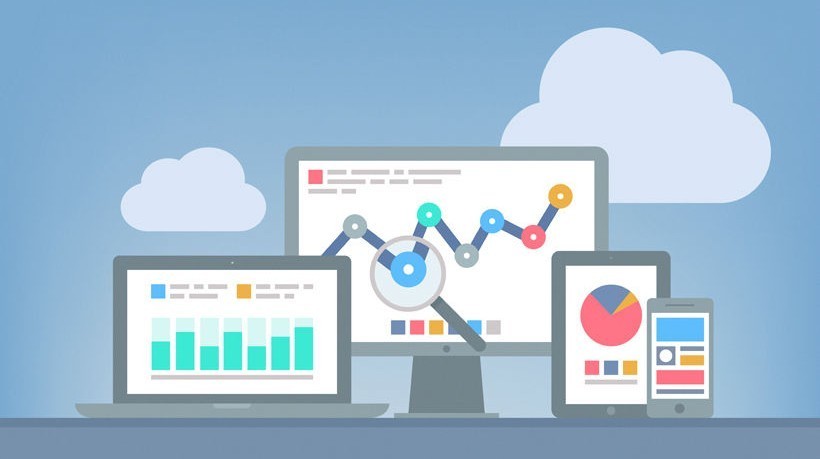How To Choose The Right Type Of LMS For Your eLearning Program
Are you ready to launch an eLearning program in your organization? Whether you're looking to upskill your employees, onboard new hires, or provide JIT resources to your remote workforce, specialized LMSs can be the solution to your L&D issues. Due to the versatility and customizability of the different types of LMS platforms, your organization can individually target its L&D objectives with laser-focused precision by simply figuring out the purpose the software will serve. Moreover, as the digitalization of many industries continues, providing easily accessible, custom-tailored solutions to your staff can help them acclimate to the concept of digital transformation, and immediately address moments of need while saving on resources, time, and effort.
Now, there are many Learning Management Systems currently available on the market. Do you know which one would best suit your eLearning strategy? If not, we have compiled a list of different types of LMS solutions to help you make an informed decision.
Why Opting For A Need-Specific LMS Solution Is Worth It
While LMSs can be extremely advanced in terms of features and functionalities, selecting the specific type of platform that best suits your eLearning program's objectives is a strategic move. No leader wants to launch an L&D initiative that won't return satisfactory results in their target areas. Certainly, there are more than a dozen different types of LMS solutions, and making the right decision can be challenging, but it's nothing a little research can't fix. So why should you take the time to sort through all these different versions of the "same" software?
After some market research, you'll come to realize that we aren't talking about slightly modified versions of the same product from hundreds of different vendors. Essentially, we're talking about a product classification that encompasses different areas of specialization which accommodate a range of needs and objectives. Choosing an LMS that fits your eLearning program is actually less complicated than modifying your eLearning program to fit your existing software. Not to mention, it's more rewarding and cost-effective in the long run.
Additionally, utilizing specialized LMSs in your L&D program can help boost learner engagement, employee retention, and satisfaction. Specialized LMSs aid in building a continuous learning culture, which allows businesses to stay relevant in an ever-fluctuating market, and encourage employee growth and development. Moreover, opting for a need-specific Learning Management System can actually facilitate a collaboration-geared work environment that encourages smoother operational processes and reflects the needs and requirements of high-functioning teams.
How To Get Started
After careful consideration of the purpose behind the program, its intended learner base, and the type of learning content that will accompany the initiative, you are ready to start outlining tangible goals and objectives. To further streamline your planning process, request feedback from your employees and closely examine their takes on their preferred learning styles, methods, and targets. After all, the winning LMS will become part of their day-to-day so it's good to account for what your team needs.
By reviewing the data acquired, your L&D team can go on to vet prospective vendors and evaluate the different types of LMS solutions they offer. If you assess the lists below, you can get a better feel for what would be the right fit for your eLearning program. We have split our recommendations into two categories, one based on the mode of delivery, and another based on the use case.
5 Types Of LMS Solutions Based On Delivery Mode
1. Cloud-Based Learning Management Systems
To fully leverage the flexibility and adaptability of LMSs, consider selecting a cloud-based Learning Management System. No more worrying about outdated information, remote employees' access, or data loss thanks to built-in data loss prevention tools. Cloud-based solutions provide training anytime, anywhere because they are designed to bring knowledge and dispersed teams together.
2. Extended Enterprise Learning Management Systems
Keep your staff and your external stakeholders connected with an extended enterprise LMS software. As companies grow, coordinating an extensive network of partners and employees will be challenging. You can boost your eLearning program's efficiency and your training outcomes by leveraging an LMS with an expanded reach.
3. Learning Management Systems For Remote Employees
Similar to cloud-based LMSs, Learning Management Systems that are built with the remote workforce in mind can generate incredible training results. As a decentralized knowledge hub, this software provides Just-In-Time resources to anyone working remotely, regardless of material type, employee location, or other factors. It's an adaptable solution that ensures all staffers receive a unified training experience.
4. Mobile Learning Platforms To Learn On The Go
Mobile learning is more than a trend, now. It's a versatile solution that allows users to access learning content from their tablet or smartphone. Whether they are on their lunch break, commuting to the office, or working remotely, mLearning platforms are designed to deliver optimal training without interruptions or barriers.
5. LMS Solutions For Hybrid Or Blended Learning
Since companies continue to shift toward hybrid modes of working, launching an L&D program needs to account for both in-person and remote employees. Whether you go for a hybrid learning program or a blended learning training strategy, you need to offer consistent training to the entire staff, regardless of where they are based. Still, allowing your employees to select between in-person or remote training will certainly enhance learner engagement and training outcomes. Just make sure that both types of LMS solutions are accessible online and offline to maximize your results.
5 Types Of LMS Solutions Based On Use Case
1. Learning Management Systems For Employee Onboarding
If your organization is ready to welcome new additions, opting for an LMS solution that streamlines employee onboarding is the way to go. Keep new hires engaged and up-to-date by providing essential resources and automating basic processes for an optimized onboarding experience. This way, you ensure that you and your new employees can go through the induction phase stress-free.
2. Collaborative Learning Platforms
Collaborative learning facilitates knowledge sharing, team bonding, and solution-oriented thinking. By selecting a collaborative learning platform, organizations can leverage the collective expertise and experience of their teams, and drive innovation within their industry. If you're looking to build resilient, high-performing teams, opting for an LMS that helps foster collaboration is a great first step.
3. LMS Solutions For Learning Accessibility
LMSs that encourage and facilitate learning accessibility are currently in extremely high demand. These platforms pave the way for a company culture that celebrates inclusion by providing equally-accessible means to ensure optimized outcomes for all. Platforms that focus on learning accessibility deliver learning content in a way that serves every learner's needs, so it's a good investment for future-focused companies that value employee growth.
4. Upskilling-Focused LMSs
To review your training results and address any skill or knowledge gaps in your organization, consider employing a Learning Management System that's optimized for skills development and assessment. The merit of these platforms is that they accelerate your upskilling efforts by identifying each learner's strong points and areas for improvement and targeting them with personalized precision.
5. LMSs For Compliance Training
Mandatory training can be a source of misery for many employees with an already full plate. Yet, comprehensive compliance training strategies are non-negotiable for any business looking to mitigate risks and ensure staff and customer safety. LMS solutions designed for compliance training can help alleviate the discontent associated with mandatory training and provide essential information while keeping employees engaged, safe, and up-to-date.
Conclusion
Among the many types of LMS solutions, there's one that's ideal for your eLearning program. Regardless of its purpose, your L&D initiative can easily reach its targets, if complemented with the right tools. Investing in those tools means investing in your employees and your company's growth. However, if the options we've compiled for you aren't enough, you can still go through our list of The Best Learning Management Systems and find one that suits your specific needs.







